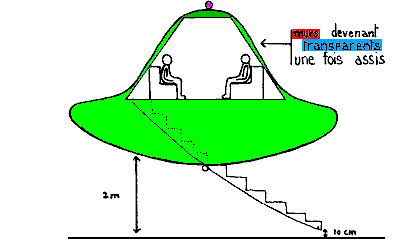According to Rael, the Elohim have "noted that an organism loses a few grams at the moment of its death - in fact this is merely the energy that all living things have available to them, which is eliminated at the moment" (p. 153, Intelligent Design) in a bid to prove that there are no ethereal souls. But, the mistake that he makes is that dead bodies do not lose any weight at the moment of death.
Popular culture, thanks to a physician Duncan MacDougall who conducted a series of experiments weighing dead people and animals in the early 1900s, holds the belief that human souls weigh 21 grams (MacDougall didn't notice any weight change in dead animals). Unfortunately, no one has been able to replicate MacDougall's experiment, which is now deemed pseudo-scientific. The main criticisms are that the sample size was too small (only 1 of 6 subjects supported MacDougall's hypothesis) and therefore was a case of selection bias. Following the publication of the experiment in American Medicine, physician Augustus P. Clarke criticized the experiment's validity. Clarke noted that at the time of death there is a sudden rise in body temperature as the lungs are no longer cooling blood, causing a subsequent rise in sweating which could easily account for MacDougall’s missing 21 grams. Clarke also pointed out that, as dogs do not have sweat glands, they would not lose weight in this manner after death.
But, how much energy do we exert at an instance, say a second? The digestion process releases stored chemical energy from food. This energy is measured in Calories. In food, what is commonly called a “Calorie”, actually refers to Kilocalories (Kcal), or 1000s of calories; a calorie is the amount of energy it takes to raise the temp of 1 gram of water by 1 degree Celsius.
Okay so how much is that? 1 Calorie (Kcal) = 4184 Joules; joules is the universal measure of energy. So a 2000 calorie diet per day (recommended by FDA) corresponds to about 8.37 million joules or energy every day.
Power is stated in watts; a watt is equal to 1 joule / second. So if you consume 8.4 million in a day, or in 86,400 seconds, that’s about 96 joules every second, or roughly 100 watts.
Popular culture, thanks to a physician Duncan MacDougall who conducted a series of experiments weighing dead people and animals in the early 1900s, holds the belief that human souls weigh 21 grams (MacDougall didn't notice any weight change in dead animals). Unfortunately, no one has been able to replicate MacDougall's experiment, which is now deemed pseudo-scientific. The main criticisms are that the sample size was too small (only 1 of 6 subjects supported MacDougall's hypothesis) and therefore was a case of selection bias. Following the publication of the experiment in American Medicine, physician Augustus P. Clarke criticized the experiment's validity. Clarke noted that at the time of death there is a sudden rise in body temperature as the lungs are no longer cooling blood, causing a subsequent rise in sweating which could easily account for MacDougall’s missing 21 grams. Clarke also pointed out that, as dogs do not have sweat glands, they would not lose weight in this manner after death.
But, how much energy do we exert at an instance, say a second? The digestion process releases stored chemical energy from food. This energy is measured in Calories. In food, what is commonly called a “Calorie”, actually refers to Kilocalories (Kcal), or 1000s of calories; a calorie is the amount of energy it takes to raise the temp of 1 gram of water by 1 degree Celsius.
Okay so how much is that? 1 Calorie (Kcal) = 4184 Joules; joules is the universal measure of energy. So a 2000 calorie diet per day (recommended by FDA) corresponds to about 8.37 million joules or energy every day.
Power is stated in watts; a watt is equal to 1 joule / second. So if you consume 8.4 million in a day, or in 86,400 seconds, that’s about 96 joules every second, or roughly 100 watts.
So, the question is, does energy have weight (or, mass)? Weight of an object is the force with which the object is pulled down by earth, so you can only have the weight of material particles that have mass and are attracted by gravity .
Energy on the other hand is the ability to do work, in a body; like a car moving at a speed of 100 miles an hour has energy, it can hit an object and make it move, thus doing work, or a cell has chemical energy that it converts into electricity. It not a 'material body' that can be 'weighed', it is a sort of property of the object that possesses it, because of its speed, position or state.
Energy on the other hand is the ability to do work, in a body; like a car moving at a speed of 100 miles an hour has energy, it can hit an object and make it move, thus doing work, or a cell has chemical energy that it converts into electricity. It not a 'material body' that can be 'weighed', it is a sort of property of the object that possesses it, because of its speed, position or state.
However, a dead body doesn't move, and therefore does not use up any energy. Looks like Rael relied on popular ideas around the time of his supposed encounters with our extraterrestrials creators, such as Continental Drift, Chemical Education, achieving Eternal Life by cloning oneself from a single cell (including memories inside it), and TV being the nervous system of the world (without the knowledge of the Internet being developed by DARPA around that time).
Advocatus Diaboli
Advocatus Diaboli
























